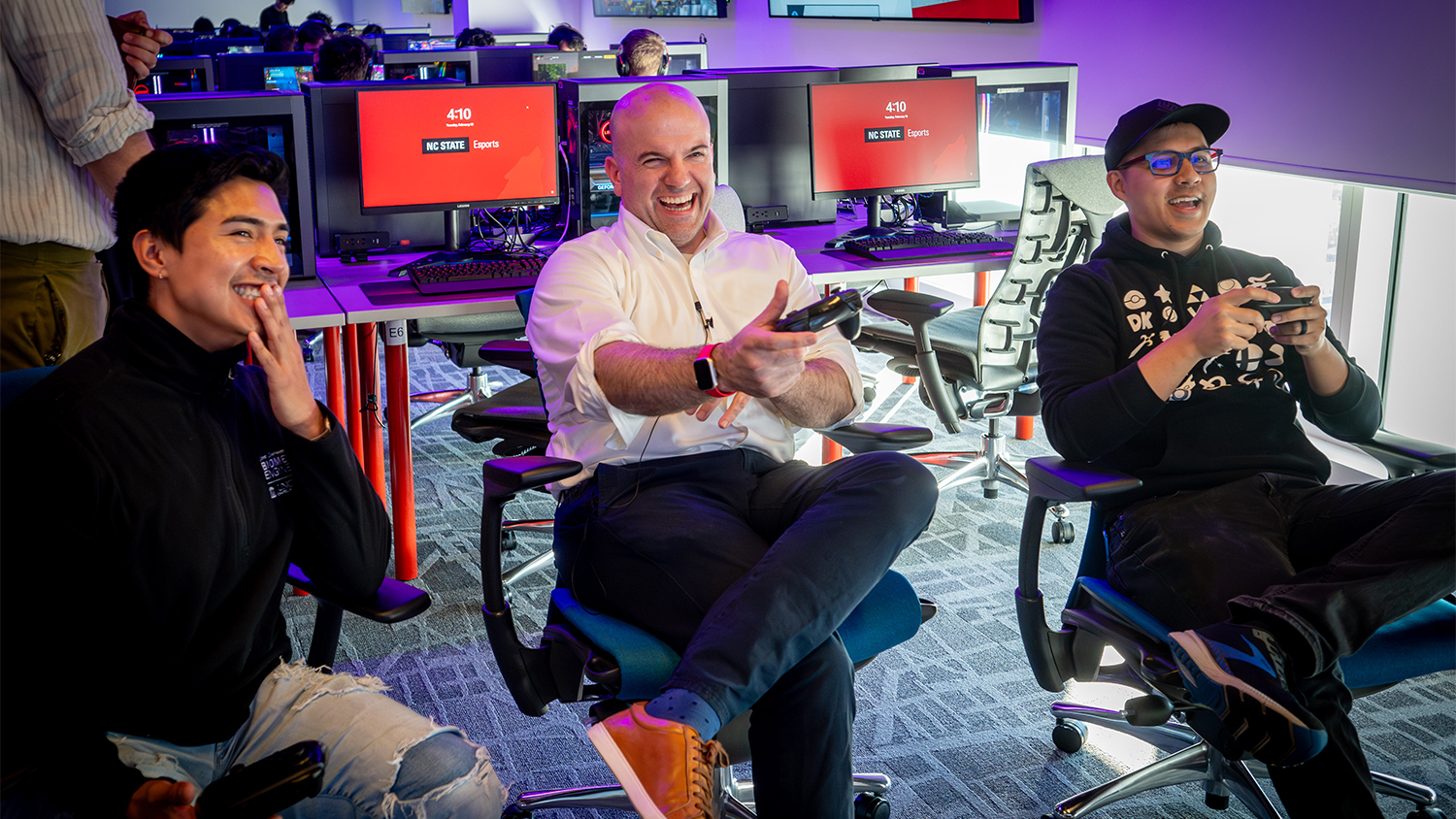How NC State starts up


Statistics from the Ewing Marion Kauffman Foundation make the case for entrepreneurship as the lifeblood of job creation in the United States.
Companies that were five years old or younger at the time created 1.5 million to 3 million jobs per year between 1988 and 2011, the foundation said in a 2014 report. Firms five years or older mostly held steady during the same period or even lost more jobs than they created.
“Startup companies are the engine of job creation. Period,” said Dr. Tom Miller, senior vice provost for academic outreach and entrepreneurship and founder of the Engineering Entrepreneurs Program (EEP) and Entrepreneurship Initiative (EI) at NC State. “If you took the startups out of the equation, most years we would have negative job growth and that would be devastating.”
Miller, then a professor in the Department of Electrical and Computer Engineering, started the EEP in 1993 to give students a hands-on education in entrepreneurship. Miller founded the campus-wide EI in 2008 in response to NC State’s strategic objective to “develop an educated entrepreneurial work force.”
Today, entrepreneurship is a focus across NC State’s campus, with more than 100 companies launched from NC State ideas. (Turn to pages 20 and 21 to learn more about the programs and tools the university has put in place to help our students and faculty create new businesses.)
A survey of business startup impact across the University of North Carolina system showed that in 2012-13, 86 percent of the total impact from all 16 universities in the system came from NC State. That totals $1.2 billion in annual impact in North Carolina from NC State startups.
“NC State really has been very supportive of such entrepreneurship efforts in the last few years,” said Dr. Orlin Velev, INVISTA Professor in the Department of Chemical and Biomolecular Engineering and co-founder of two startup companies based on research from his lab. “Essentially, we want to mentor our graduates on how to create their own jobs by venturing into new technologies and then learning how to scale them up and commercialize them. Hopefully, that trend will continue and expand.”
From idea to company
EEP students take original ideas and turn them into a real product or service through design and implementation. If they want to start a company, the university can provide the resources to help, including assistance with licensing and intellectual property disclosure from the Office of Technology Transfer and through Miller’s connections with the Triangle’s burgeoning startup community.
It’s those connections that make entrepreneurial education more than just a lecture.
“It’s not so much about the classes you do,” Miller said. “It’s about experiential learning. It’s about mentoring. It’s about connecting.”
Each year, Miller takes EI students to California’s Silicon Valley to tour companies like Google, Apple and Facebook. EI alumni working for those companies often serve as hosts.
In the spring, entrepreneurial teams compete in the EI’s LuLu eGames, an annual student design competition that proved to be the launching pad for NC State startup Undercover Colors.
The EI took a big step forward in 2010 with the opening of The Garage, a work space that offers students the tools needed to develop their products and a collaborative setting that allows them to build on each other’s ideas.
Nearly 75 percent of EI members come from the College of Engineering, followed by the Poole College of Management. Membership in the EI program has taken off since The Garage opened, increasing by 132 percent in the last year alone to a total of 634 student members.
The Garage is now part of the Albright Entrepreneurs Living and Learning Village on Centennial Campus, allowing EI students to live in the same building where they work on their ideas.
Putting entrepreneurially minded students together can lead to what Miller calls “beneficial collisions.” Students with similar ideas and useful skill sets bump into each other and form relationships that can take a project from dream to doable.
It’s the idea behind the Albright Village and what Miller hopes will be the next step in the university’s entrepreneurship efforts – a new Center for Leadership and Entrepreneurship.
The proposed center would be housed in a new building on Centennial Campus that would bring the EI and Garage under the same roof with the university’s General Hugh Shelton Leadership Center, a values-based leadership development center that offers programs for youth as well as college students and executives, and the Tech Incubator, a program that helps NC State’s early-stage technology entrepreneurs thrive.
“What an opportunity for NC State to have these great programs and then put them together and leverage the synergies,” Miller said.
Return to contents or download the Fall/Winter 2015 NC State Engineering magazine.
- Categories:


